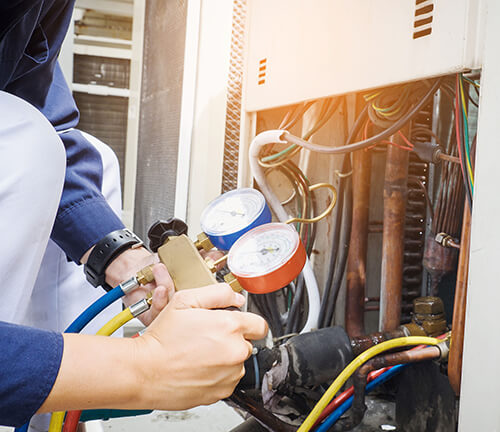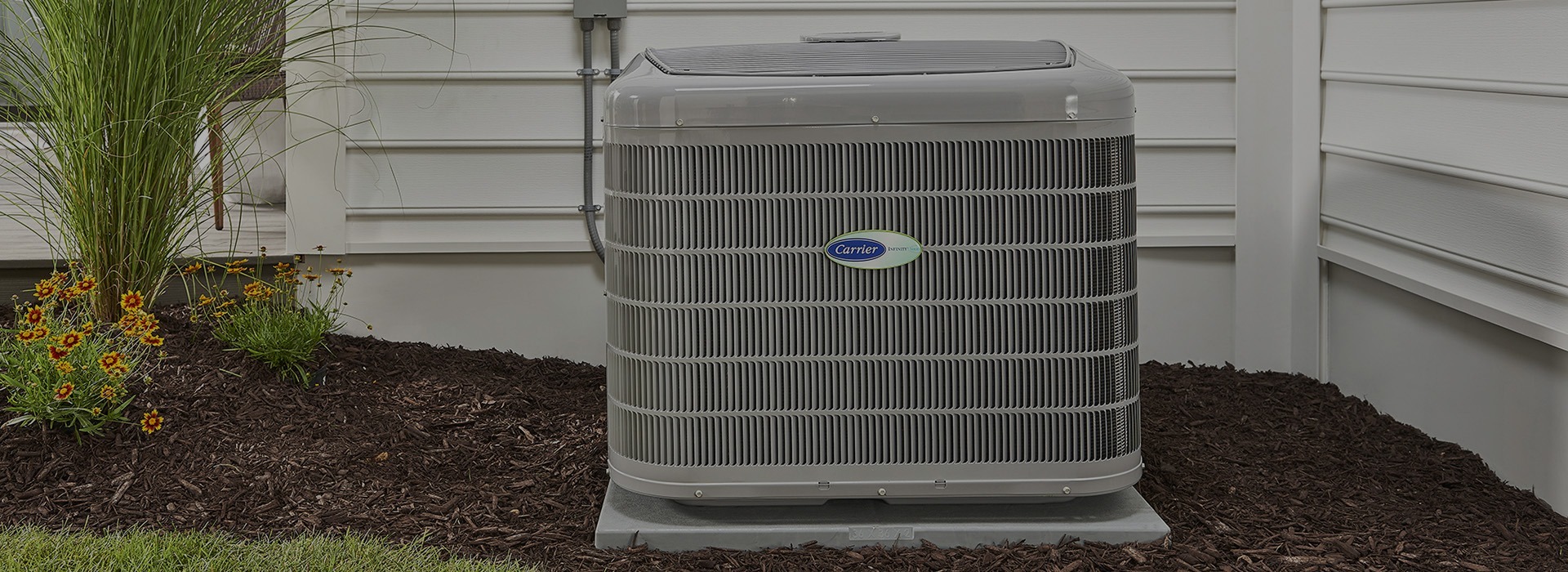Budget-Friendly Maintenance Plans with DMAKS HVAC for Your Needs.
Budget-Friendly Maintenance Plans with DMAKS HVAC for Your Needs.
Blog Article
Exactly How to Choose the Right HVAC System for Your Demands
Picking the suitable heating and cooling system is a crucial decision that calls for cautious consideration of numerous aspects. Begin by assessing your home's dimension, design, and distinct requirements, as these components dictate the necessary ability and setup of the system. Additionally, developing a spending plan that includes installation and long-lasting operational prices is vital. As you weigh your alternatives, recognizing power efficiency rankings and the effects of your local environment will certainly play a substantial function in your choice. The myriad of system types offered can complicate this procedure, leading one to question which course eventually leads to optimum comfort and effectiveness.
Examine Your Home Size
Assessing your home size is a vital primary step in selecting the suitable a/c system. The dimension of your home straight influences the heating & cooling capability needed for reliable environment control. A HVAC system that is also small will struggle to maintain comfortable temperatures, resulting in boosted power consumption and endure the unit. Conversely, a large system can lead to short cycling, inadequate moisture control, and inefficient operation.
To properly examine your home size, determine the square footage of each space, considering elements such as ceiling height and the format. Additionally, take into consideration the insulation top quality and the number of home windows, as these elements impact thermal efficiency. Homes with open layout may require different system setups contrasted to those with lots of split spaces.
Utilizing the Handbook J lots estimation method can supply a much more specific estimate of your cooling and heating requires. This method represent different factors, consisting of neighborhood environment, solar gain, and tenancy patterns. By thoroughly assessing these elements, you can guarantee that your selected heating and cooling system is appropriately sized, resulting in improved comfort, power performance, and long life of the tools.
Determine Your Spending Plan
Establishing your budget is a crucial action in the heating and cooling system selection procedure, as it sets the parameters for your alternatives - DMAKS HVAC. A HVAC system is a considerable investment, and recognizing your financial restrictions will certainly assist limit choices that fit within your ways
Begin by examining not only the preliminary purchase cost but also setup costs, which can vary considerably relying on the complexity of the task. Moreover, take into consideration ongoing expenditures such as maintenance, fixings, and power consumption. A system might show up affordable initially yet can bring about greater costs gradually if it is much less effective.
It is suggested to allocate a backup fund for unforeseen expenditures that might occur during installment or preliminary system modifications (DMAKS HVAC). Furthermore, explore funding alternatives or discounts that may be available, as these can relieve the burden of ahead of time expenses
Ultimately, having a clear budget plan enables you to engage with cooling and heating experts extra efficiently, guaranteeing you get customized advice that lines up with your economic objectives and home needs. By being persistent concerning your spending plan, you can make informed choices that enhance convenience without jeopardizing financial security.
Evaluate Power Effectiveness
Energy performance plays an essential role in the overall performance and cost-effectiveness of your HVAC system. Look for systems with a high Seasonal Power Performance Ratio (SEER) for cooling and a high Annual Gas Application Efficiency (AFUE) score for heating.
Additionally, consider the Power Star qualification, which indicates link that the system fulfills rigid performance standards established by the Epa. Investing in an Energy Star-rated cooling and heating system can bring about significant cost savings over time, particularly in areas with extreme temperature level fluctuations.
One more factor to review is the system's size and capability. An extra-large or undersized unit can cause inadequacy and raised energy expenses. DMAKS HVAC. Proper sizing, often figured out with a Hands-on J lots calculation, makes certain that the system operates at ideal performance


Consider Environment and Setting
When choosing a HVAC system, it is critical to take into consideration the local environment and ecological conditions, as these variables substantially affect the system's efficiency and efficiency. Different regions experience differing temperature extremes, humidity degrees, and seasonal adjustments, all of which effect heating and cooling down demands.

Moreover, regional ecological factors, such as air top quality and prospective irritants, need to inform blog your choice. Equipments geared up with advanced filtration modern technologies can help mitigate pollutants and give cleaner air. In addition, consider the energy resources offered in your location-- some a/c systems are a lot more reliable when powered by natural gas or renewable resource resources.
Ultimately, straightening your a/c system selection with your local environment and environmental considerations will lead to boosted comfort, improved effectiveness, and reduced energy expenses.
Explore System Types and Functions
As home owners look for to enhance comfort and performance, checking out the numerous types of HVAC systems and their unique functions comes to be essential. The primary kinds of HVAC systems include central air conditioning, warmth pumps, ductless mini-split systems, and furnaces. Each system supplies unique advantages tailored to different requirements and choices.
Air conditioning systems supply consistent cooling throughout a home, making them excellent for larger spaces. Heatpump act as both home heating and cooling down remedies, utilizing electrical power to move heat, which can lead to reduced power costs. Ductless mini-split systems are becoming progressively popular because of their versatility and ease of setup, permitting property owners to manage the temperature level in private spaces without substantial ductwork.

Final Thought
Finally, choosing the appropriate heating and cooling system necessitates careful factor to consider of different elements, including home size, budget plan restraints, power effectiveness, local environment, and readily available system kinds. A comprehensive assessment of these aspects makes sure ideal convenience and cost-effectiveness. By complying with a structured strategy, property owners can make informed choices that line up with reference their particular demands and choices, inevitably bring about improved indoor air quality and energy savings.
Report this page